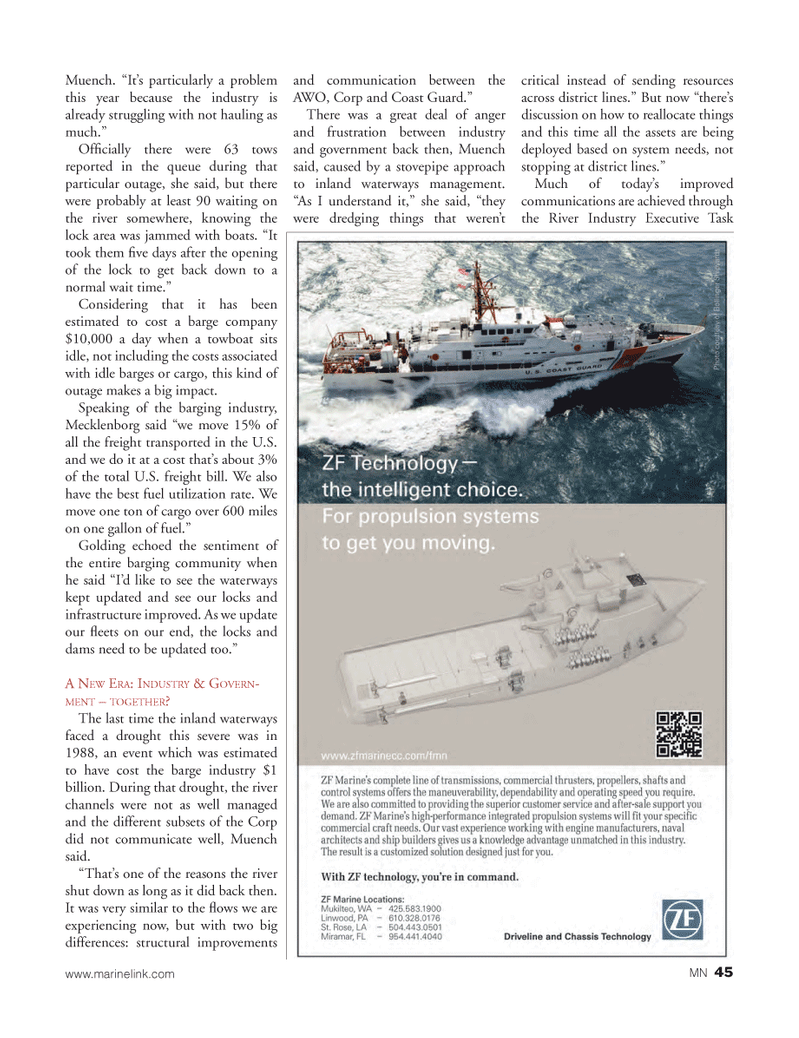
Page 45: of Marine News Magazine (November 2012)
Workboat Annual
Read this page in Pdf, Flash or Html5 edition of November 2012 Marine News Magazine
Muench. ?It?s particularly a problem this year because the industry is already struggling with not hauling as much.?Of cially there were 63 tows reported in the queue during that particular outage, she said, but there were probably at least 90 waiting on the river somewhere, knowing the lock area was jammed with boats. ?It took them ve days after the opening of the lock to get back down to a normal wait time.?Considering that it has been estimated to cost a barge company $10,000 a day when a towboat sits idle, not including the costs associated with idle barges or cargo, this kind of outage makes a big impact.Speaking of the barging industry, Mecklenborg said ?we move 15% of all the freight transported in the U.S. and we do it at a cost that?s about 3% of the total U.S. freight bill. We also have the best fuel utilization rate. We move one ton of cargo over 600 miles on one gallon of fuel.?Golding echoed the sentiment of the entire barging community when he said ?I?d like to see the waterways kept updated and see our locks and infrastructure improved. As we update our eets on our end, the locks and dams need to be updated too.? A NEW ERA: INDUSTRY & GOVERN -MENT ? TOGETHER ?The last time the inland waterways faced a drought this severe was in 1988, an event which was estimated to have cost the barge industry $1 billion. During that drought, the river channels were not as well managed and the different subsets of the Corp did not communicate well, Muench said. ?That?s one of the reasons the river shut down as long as it did back then. It was very similar to the ows we are experiencing now, but with two big differences: structural improvements and communication between the AWO, Corp and Coast Guard.? There was a great deal of anger and frustration between industry and government back then, Muench said, caused by a stovepipe approach to inland waterways management. ?As I understand it,? she said, ?they were dredging things that weren?t critical instead of sending resources across district lines.? But now ?there?s discussion on how to reallocate things and this time all the assets are being deployed based on system needs, not stopping at district lines.?Much of today?s improved communications are achieved through the River Industry Executive Task www.marinelink.com MN 45MNNov2012 Layout 32-49.indd 45MNNov2012 Layout 32-49.indd 4511/6/2012 3:19:27 PM11/6/2012 3:19:27 PM

 44
44

 46
46
